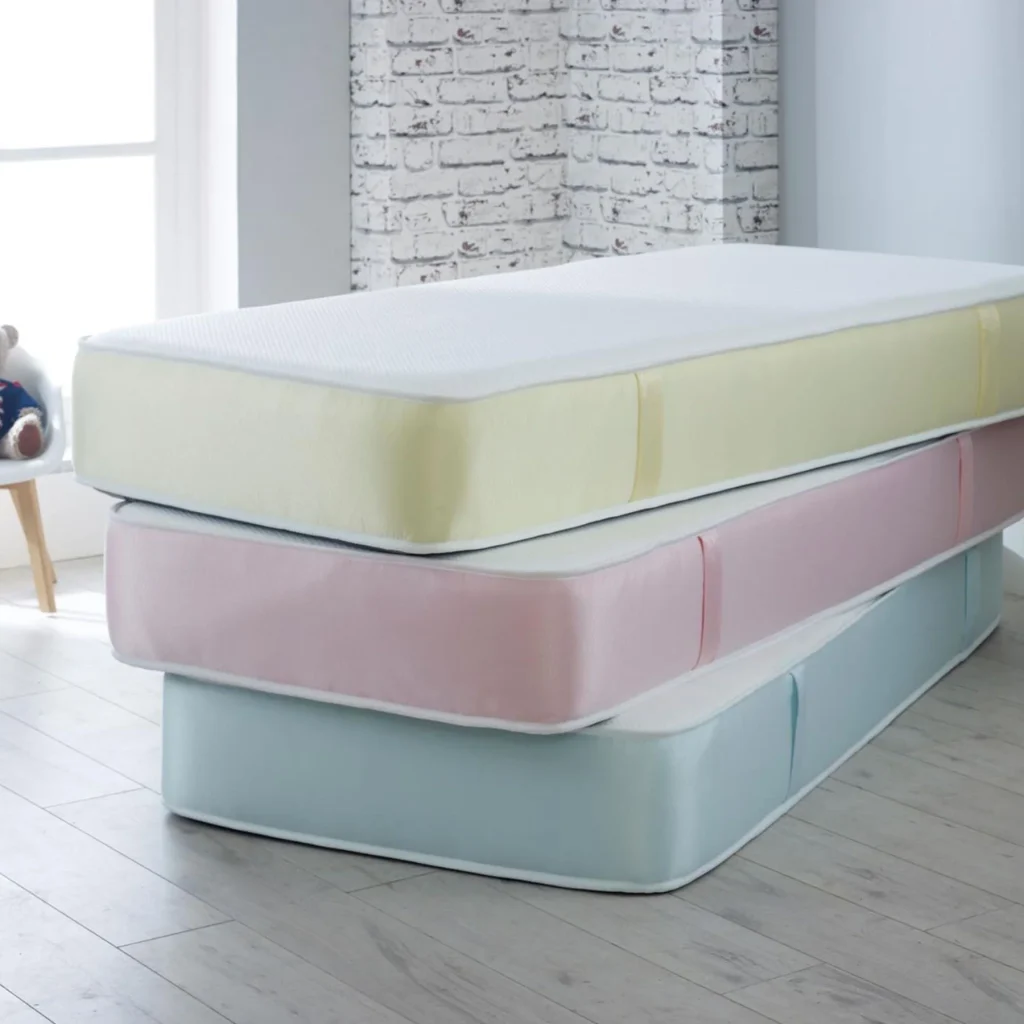Uncategorized
Best Beds & Mattresses for Children & Teenagers
Sizing, durability, comfort and growth-proof choices for parents
Choosing a bed or mattress for a child or teenager can feel overwhelming. Kids grow fast, and
their sleep needs evolve — so choosing the right size, firmness and type can save you money
and ensure proper support while they grow.
1. What Bed Size Should You Choose?
Toddlers (2–4 years)
Most toddlers move from a cot to a small single or cot bed. These are low to the ground and
safe, ideal for smaller rooms.
Children (4–10 years)
A standard UK single (90 × 190cm) is the most popular choice. It gives enough room to grow
without taking up too much space.
Older Children (10–12 years)
If they move around a lot in their sleep or you want something that lasts longer, a small double
is a great upgrade.
Teenagers (13+)
Teenagers can stay in a single, but if space allows a small double or full double bed is much
more comfortable — and usually lasts right into adulthood without needing to be replaced.
Tip: If the room and budget allow, it’s often better to skip straight to a small double or double for
teenagers to avoid replacing everything within a couple of years.
2. What Mattress Firmness Is Best?
Children aged 4–12 sleep best on a medium or medium-firm mattress. This offers
gentle support while their bones and joints are still developing.
Teenagers are heavier and need more support, so a medium-firm or firm mattress is
ideal to maintain good spinal alignment.
Avoid very soft mattresses as they don’t provide the support needed and tend to sag
quickly.
3. Mattress Types to Consider
Pocket Spring Mattresses
A great all-round option for both children and teens. They’re durable, supportive and minimise
movement if your child tosses and turns.
Memory Foam Mattresses
Good for teenagers who prefer a softer,
“moulded” feel. They relieve pressure on joints but can
get warm — so breathable foam or cooling layers are best.
Open Coil (Bonnell Spring)
These are more affordable and lightweight, making them a decent short-term choice. However,
they don’t last as long and can become noisy over time.
Hybrid Mattresses (Spring + Foam)
The best of both worlds — they offer the support of springs with the comfort of foam. Ideal for
growing teenagers but slightly more expensive.
Orthopaedic Mattresses
A good option for older teens with posture issues or back discomfort, as they provide extra
firmness and support.
4. Important Things to Consider Before Buying
Durability: Kids grow quickly, so choose a mattress that will last 6–8 years, especially if
you opt for a larger bed size.
Allergies: Look for hypoallergenic fabrics and anti-dust-mite fillings if your child has
asthma or sensitivities.
Mattress Protectors: A washable protector can save the mattress from spills, accidents
and bacteria.
Bed Frame Strength: Make sure the frame has solid slats or a sturdy base. Divan beds
are great for storage, while wooden or upholstered frames offer style and durability.
Space and Storage: For smaller rooms or shared bedrooms, consider divan beds with
drawers, bunk beds or mid-sleepers.
5. When Is It Time to Replace the Mattress?
You should think about replacing your child’s mattress if you notice:
Sagging, dips or visible lumps
They are complaining of back or joint pain
Poor sleep or constant restlessness
The mattress is older than 7–8 years
Your child has clearly outgrown the bed size
6. Best Choices by Age Group
For Young Children (4–10):
Single bed with a medium-firm mattress
Waterproof mattress protector for hygiene and longevity
For Tweens (10–13):
Single or small double bed
Pocket sprung or hybrid mattress for comfort and support
For Teenagers (13+):
Small double or double bed if possible
Medium-firm mattress to support growing bodies
Optional headboard and under-bed storage for practicality
Conclusion
A good night’s sleep is essential for your child’s development, mood and overall health.
Choosing the right bed and mattress now — one that supports growth, offers durability and fits
your space — can make life easier for years to come.

